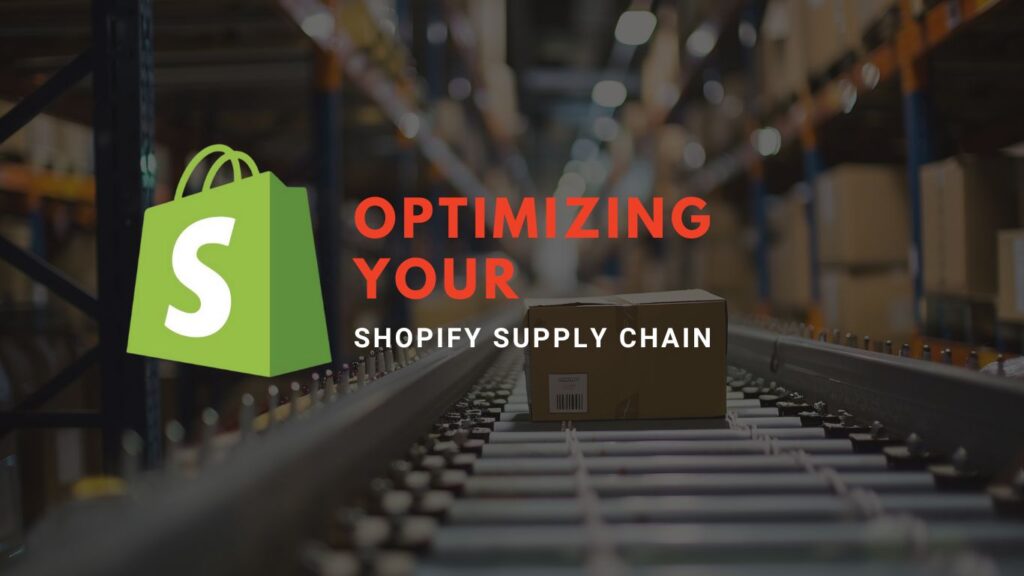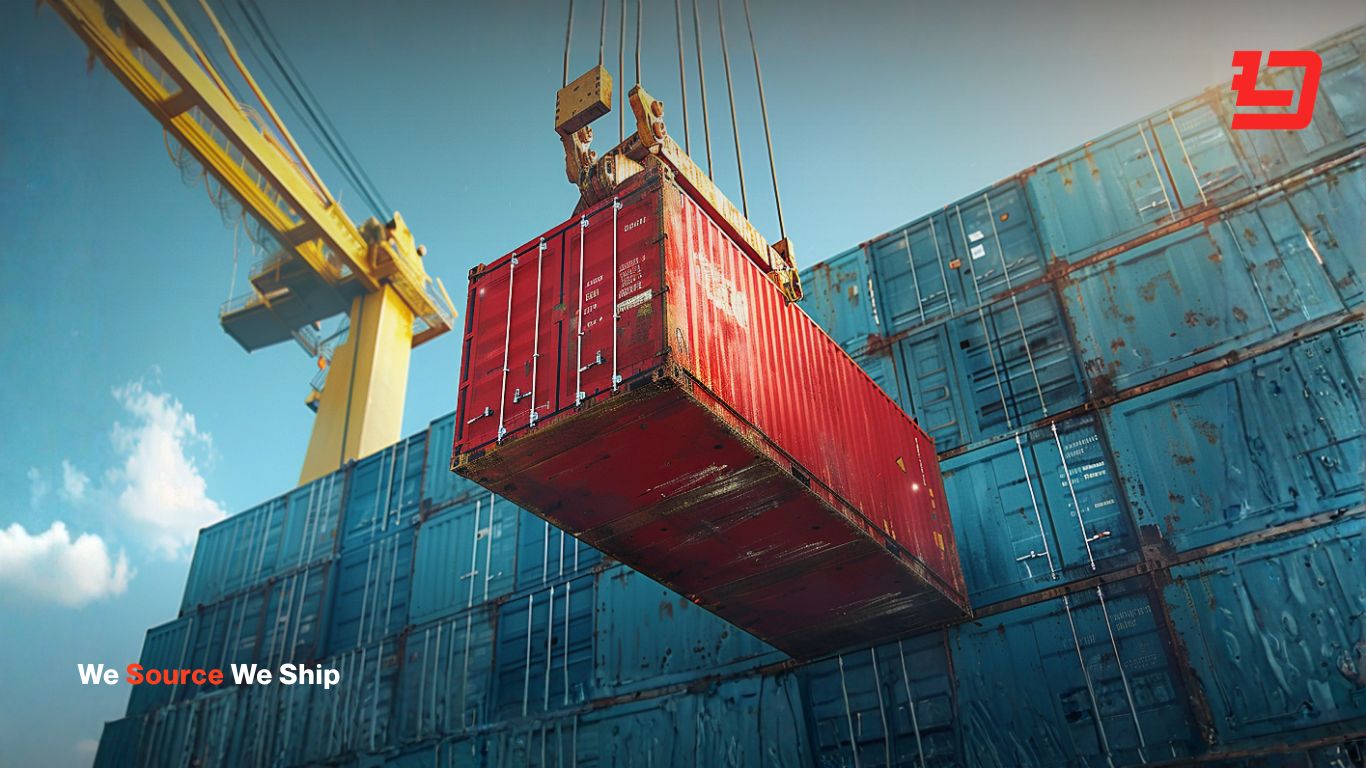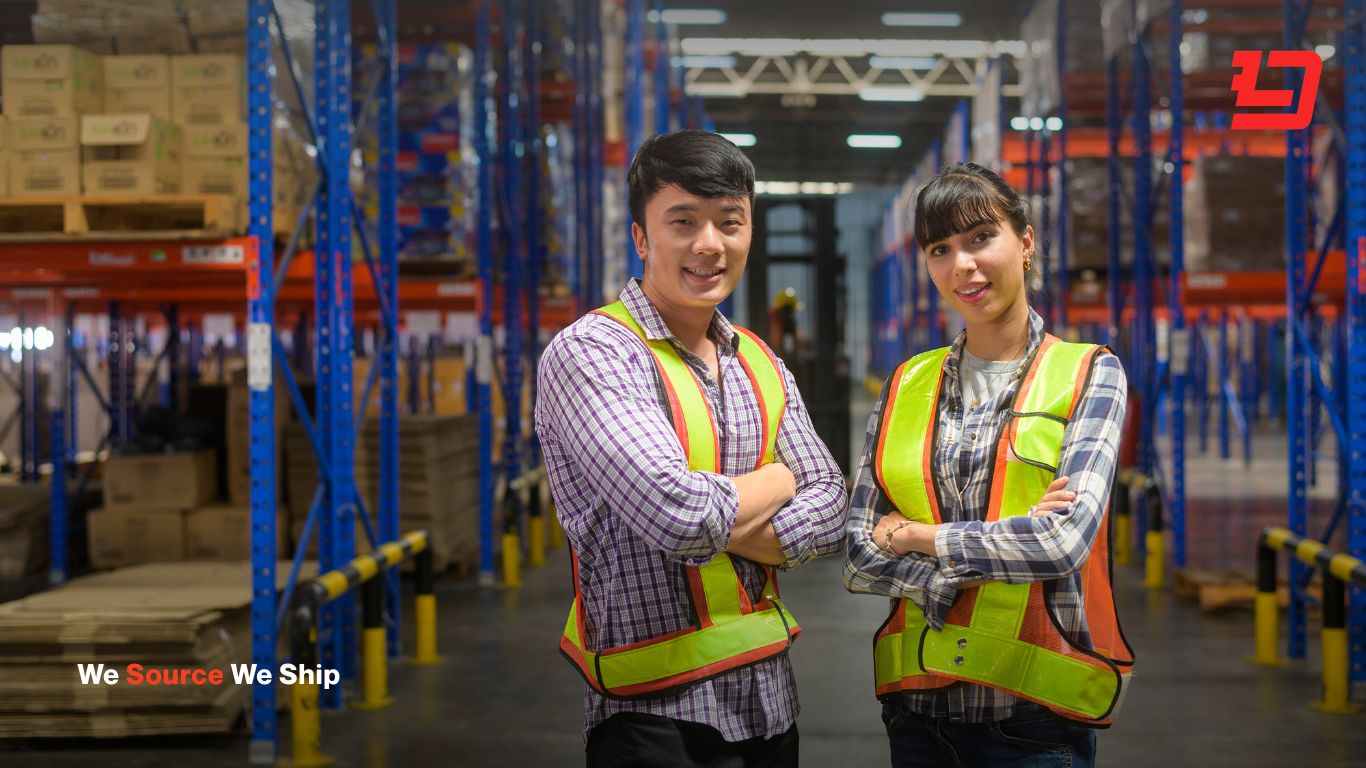
Are you a Shopify store owner wrestling with a messy supply chain? Do late deliveries and stockouts keep you up at night? Inefficient supply chain management can hurt your profits and leave customers unhappy. Luckily, there are supply chain solutions for Shopify businesses that can make a huge difference.
Table of Contents
- Introduction
- The Importance of Supply Chain Solutions for Shopify Stores
- Understanding the Shopify Supply Chain Landscape
- What is a Supply Chain?
- The Unique Challenges for Shopify Businesses
- The Impact of Poor Supply Chain Management
- Key Supply Chain Solutions for Shopify
- Inventory Management Software
- Dropshipping for Shopify
- Third-Party Logistics (3PL) Providers
- Lansil Global’s Integrated Supply Chain Solutions
- Optimizing Your Shopify Supply Chain
- Demand Forecasting and Planning
- Streamlining Order Fulfillment
- Building Strong Supplier Relationships
- Choosing the Right Supply Chain Solutions
- Assessing Your Business Needs
- Evaluating and Comparing Solutions
- Real-World Success Stories
- The Future of Shopify Supply Chain
- Embracing Technology and Innovation
- Sustainability and Ethical Sourcing
- Expert Insights: Supply Chain Innovations
- Frequently Asked Questions
- Conclusion
- Steps to Take for a More Efficient Shopify Supply Chain
Understanding the Shopify Supply Chain Landscape
A supply chain includes everything it takes to get products from the factory to your customer’s door. For Shopify stores, that means sourcing materials, making products, storing them, fulfilling orders, and handling returns. It’s a complex web that requires specialized supply chain solutions for Shopify businesses to manage effectively.
What is a Supply Chain?
A supply chain for Shopify businesses typically includes these key components:
- Sourcing and Procurement: Finding and purchasing raw materials or finished products
- Production: Manufacturing goods (if applicable)
- Inventory Management: Storing and tracking products
- Order Processing: Receiving and processing customer orders
- Fulfillment: Picking, packing, and shipping orders
- Delivery: Transporting products to customers
- Returns Management: Processing returned items
The Unique Challenges for Shopify Businesses
Shopify businesses face some unique challenges when it comes to their supply chain:
- Inventory Management Complexity: Balancing stock across multiple sales channels
- Order Fulfillment Delays: Meeting customer expectations for fast shipping
- Limited Visibility: Difficulty tracking orders and inventory in real-time
- Scaling Issues: Growing pains when order volume increases
- Supplier Management: Coordinating with multiple vendors and manufacturers
These challenges highlight why specialized supply chain solutions for Shopify stores are so important for sustainable growth.
Example: The Jewelry Store Dilemma
Imagine this: You’re a small business owner with two Shopify stores. You sell handmade jewelry. Keeping track of beads, clasps, and wires across both stores using spreadsheets is a mess. It’s easy to lose track, and orders get delayed. Sound familiar?
Sarah, owner of Beaded Treasures, experienced this firsthand. She was manually updating inventory between her main Shopify store and her Etsy shop. When a large order came in, she accidentally sold the same inventory twice, leading to a two-week delay for several customers and multiple negative reviews. Implementing proper supply chain solutions for Shopify could have prevented this situation entirely.
The Impact of Poor Supply Chain Management
Poor supply chain management can be costly:
| Issue | Potential Impact | Statistics |
| Stockouts | Lost sales and customer frustration | 70% of shoppers will go to a competitor when an item is out of stock |
| Shipping Errors | Increased costs and customer complaints | Wrong shipments cost 2-3x the original shipping cost |
| Delayed Deliveries | Damaged brand reputation | 69% of consumers are less likely to shop with a retailer again after a late delivery |
| Excess Inventory | Tied-up capital and storage costs | Holding costs typically range from 20-30% of inventory value annually |
| Poor Supplier Relations | Inconsistent quality and reliability | 60% of supply chain disruptions are caused by supplier issues |
Did you know stockouts alone cost businesses billions each year? A study by IHL Group found that global retailers lose nearly $1 trillion annually due to out-of-stock situations. This underscores why effective supply chain solutions for Shopify stores are not just nice to have—they’re essential for profitability.
Key Supply Chain Solutions for Shopify
There are many supply chain solutions for Shopify that you can implement today. This includes software, services, and new strategies. The best options work well with the Shopify platform and address your specific pain points.
Inventory Management Software
Inventory management software can be a lifesaver. It tracks stock in real-time. Software automates reordering, forecasts demand, and avoids stockouts. It also improves your cash flow.
Key Benefits of Inventory Management Software:
- Real-time stock visibility across all sales channels
- Automated reorder points and purchase orders
- Barcode scanning for accuracy and efficiency
- Batch tracking and serial number management
- Detailed reporting for better decision-making
Choosing the right inventory software is important. Think about the size of your business. Check if you need advanced features. Look for software that works well with Shopify.
Example: The Sock Shop Transformation
The Cozy Sock Co. was struggling to keep up with inventory across their Shopify store and physical location. After implementing integrated inventory management software, they reduced stockouts by 78% and decreased excess inventory by 32%, saving over $15,000 in the first year alone. This exemplifies how the right supply chain solutions for Shopify can deliver quick ROI.
Dropshipping for Shopify
With dropshipping, you don’t keep products in stock. When a customer orders, the supplier ships it directly. This cuts down on startup costs, and you can offer more products. But, your profit margins might be lower. You also have less control over fulfillment.
Pros and Cons of Dropshipping:
| Pros | Cons |
| Low startup costs | Lower profit margins |
| No inventory storage needed | Less control over fulfillment |
| Unlimited product selection | Longer shipping times |
| Easy to test new products | Quality control challenges |
| Scalability | Supplier reliability concerns |
Consider a Shopify store that sells unique phone cases. Using dropshipping, they offer many designs without needing a warehouse. This lets them test new styles quickly.
Third-Party Logistics (3PL) Providers
Third-Party Logistics (3PL) providers handle warehousing and shipping for you. Outsourcing to a 3PL gives you more space to grow. They can lower shipping costs and speed up delivery. Plus, they have the skills you might lack.
When to Consider a 3PL for Your Shopify Store:
- You’re shipping more than 100 orders per month
- Your inventory has outgrown your storage space
- You want to offer faster shipping to more regions
- Order fulfillment is taking too much of your time
- You need specialized handling for certain products
When picking a 3PL, think about their location, services, and prices. Make sure they can connect with your Shopify store.
Lansil Global’s Integrated Supply Chain Solutions
Among the leading providers of supply chain solutions for Shopify is Lansil Global. They offer end-to-end services that integrate seamlessly with the Shopify platform. Lansil Global specializes in custom supply chain management that grows with your business.
Their dedicated Shopify integration team helps store owners transition smoothly from manual processes to automated systems. Many Shopify merchants report cutting fulfillment times in half after partnering with Lansil Global, while also reducing shipping costs by up to 30%.
Lansil Global’s Shopify-Specific Solutions:
| Solution | Description | Key Benefit |
| ShopFlow Inventory | Real-time inventory sync with Shopify | 99.9% inventory accuracy |
| OrderPro Fulfillment | Automated order routing and fulfillment | 50% faster processing times |
| LogisticsConnect | Multi-carrier shipping optimization | Up to 30% shipping cost savings |
| SupplierHub | Supplier relationship management | 40% reduction in stock delays |
| ReturnsEase | Streamlined returns processing | 90% customer satisfaction with returns |
What sets Lansil Global apart is their comprehensive approach to supply chain solutions for Shopify businesses of all sizes. From small startups to enterprise-level operations, their scalable platform adapts to your specific needs.
Case Study: Fashion Retailer Revival
Trendy Threads, a fashion retailer with 5,000+ SKUs, was struggling with inventory management and order fulfillment for their Shopify store. After implementing Lansil Global’s integrated solution, they achieved:
- 99.8% order accuracy (up from 92%)
- 1-day delivery to 80% of customers (previously 3-5 days)
- 42% reduction in warehouse labor costs
- 27% increase in customer repeat purchases
Optimizing Your Shopify Supply Chain

There are ways to improve efficiency, lower costs, and make customers happier. You can use new strategies for your Shopify store.
Demand Forecasting and Planning
Knowing what your customers will buy is key. It is important to use accurate demand forecasting. Use past sales data, look at market trends, and consider seasonal changes to help forecast demand.
Effective Forecasting Methods for Shopify Stores:
- Historical data analysis (year-over-year comparisons)
- Seasonal trend mapping (identifying peak periods)
- Market trend correlation (connecting product demand to market events)
- Customer behavior analysis (purchase frequencies and patterns)
- Product lifecycle tracking (monitoring demand throughout product lifespans)
Shopify has built-in tools for analytics. You can also use other apps to help predict demand. Using these insights will help you stock the right products.
Lansil Global’s forecasting tools integrate directly with your Shopify dashboard, providing real-time insights that can reduce overstock situations by up to 40%, according to their case studies. These advanced supply chain solutions for Shopify businesses can dramatically improve inventory accuracy and capital efficiency.
Streamlining Order Fulfillment
Making order fulfillment faster is a big win. Automate tasks where you can. Optimize your warehouse layout. Use efficient packaging. Offer customers different shipping options.
Order Fulfillment Optimization Strategies:
- Warehouse Layout Optimization
- Place high-volume products near packing stations
- Group frequently purchased items together
- Create efficient picking routes
- Process Improvement
- Implement batch picking for multiple orders
- Use standardized packing procedures
- Create checklists to reduce errors
- Technology Integration
- Barcode scanning for accuracy
- Automated label printing
- Mobile picking applications
One Shopify store improved fulfillment by using a pick-and-pack system. Workers grab all the items for an order at once. This cuts down on time spent walking around the warehouse.
Lansil Global has pioneered zone-based fulfillment strategies specifically for Shopify merchants, reducing handling time and shipping costs simultaneously. These innovative supply chain solutions for Shopify have helped merchants cut fulfillment costs by an average of 23%.
Building Strong Supplier Relationships
Good relationships with suppliers matter. Talk to them often and be open about any issues. Work together as a team. Build trust and try to negotiate better deals.
Tips for Better Supplier Management:
- Establish clear communication channels and regular check-ins
- Share sales forecasts to help suppliers plan production
- Create performance metrics and quality standards
- Develop contingency plans for supply disruptions
- Consider long-term partnerships with key suppliers
Finding dependable suppliers and tracking their performance is important. This ensures you get quality products on time.
Choosing the Right Supply Chain Solutions
Picking the right supply chain solutions for your Shopify store is important. Think about what your business needs. Consider your business size, what you sell, how many orders you get, and your budget.
Assessing Your Business Needs
Before choosing a solution, know what your pain points are. What problems do you need to fix? What do you want to achieve?
Supply Chain Self-Assessment Questions:
- How many orders do you process monthly?
- What’s your error rate for shipments?
- How often do you experience stockouts?
- What percentage of orders ship on time?
- How much time do you spend on order fulfillment?
- What are your biggest customer complaints?
Do a thorough needs assessment. This will help you figure out exactly what you need from a supply chain solution.
Lansil Global offers free supply chain audits for Shopify merchants, helping identify inefficiencies you might have missed. Their consultants specialize in Shopify-specific workflows and can recommend customized solutions.
Evaluating and Comparing Solutions
When looking at different solutions, compare their features and pricing. See how well they work with Shopify. Check their customer support too.
Solution Comparison Framework:
| Factor | Questions to Ask | Importance |
| Shopify Integration | Does it connect natively? How complete is the integration? | Critical |
| Scalability | Can it grow with your business? What are the limits? | High |
| Feature Set | Does it address your specific needs? What extras are included? | High |
| User Experience | Is it easy to use? How steep is the learning curve? | Medium |
| Support | What kind of customer service is available? What are the hours? | Medium |
| Cost | What’s the pricing structure? Are there hidden fees? | Medium |
| Implementation | How long does setup take? Is training provided? | Medium |
| Security | How is your data protected? Are there compliance certifications? | High |
Create a spreadsheet to compare your options side by side. This makes it easier to see which solution is the best fit. Remember that the best supply chain solutions for Shopify stores are those that meet your specific business requirements while integrating seamlessly with the platform.
Real-World Success Stories
The Handmade Soap Company
A handmade soap business was struggling with batch tracking and inventory management. After implementing Shopify-specific supply chain solutions, they:
- Reduced production waste by 35%
- Improved batch tracking accuracy to 100%
- Decreased order processing time from 2 days to 4 hours
- Expanded product line by 45% without adding staff
The Global Gadget Store
An electronics retailer with suppliers in multiple countries implemented Lansil Global’s supplier management system and saw:
- 52% reduction in late shipments from suppliers
- 28% decrease in quality control issues
- 60% faster response to supply chain disruptions
- 33% improvement in customer satisfaction scores
These success stories demonstrate the transformative impact that the right supply chain solutions for Shopify businesses can have on operations and customer satisfaction.
The Future of Shopify Supply Chain
The world of supply chain is always changing. New tech like AI, automation, and blockchain are playing a big role. Also, sustainability is more important than ever.
Embracing Technology and Innovation
AI and automation can make your supply chain faster and more efficient. Blockchain can make it more transparent and secure. You can know where your goods are at every step of the process.
Emerging Technologies for Shopify Supply Chains:
- AI-powered demand forecasting
- Autonomous warehouse robots
- Blockchain for supply chain transparency
- IoT sensors for real-time tracking
- Voice-picking technology
- Augmented reality for warehouse management
Lansil Global has been at the forefront of implementing AI-driven supply chain solutions for Shopify stores, with their predictive shipping technology reducing delivery times by up to 20% for participating merchants.
Sustainability and Ethical Sourcing
More and more customers care about sustainability. Try to reduce your environmental impact. Ensure your suppliers treat their workers fairly.
Sustainable Supply Chain Practices:
- Eco-friendly packaging materials
- Carbon-neutral shipping options
- Local sourcing to reduce transportation emissions
- Ethical supplier vetting and certification
- Circular economy initiatives (reuse, recycle, refurbish)
- Transparent sustainability reporting
Lansil Global’s green shipping initiative helps Shopify merchants reduce their carbon footprint through optimized routing and eco-friendly packaging options, appealing to environmentally conscious consumers. Modern supply chain solutions for Shopify must address sustainability to meet growing consumer expectations.
Expert Insights: Supply Chain Innovations
Dr. Maria Chen, Supply Chain Management Professor
“The most successful Shopify businesses are those that view their supply chain as a competitive advantage rather than just a cost center. By investing in the right supply chain solutions for Shopify, merchants can create a seamless experience that builds customer loyalty and drives repeat purchases.”
Thomas Wright, E-commerce Logistics Consultant
“I’ve seen Shopify merchants transform their operations by implementing integrated supply chain solutions. The key is choosing systems that grow with you and provide real-time visibility across your entire operation. Companies like Lansil Global are changing the game by offering enterprise-level solutions tailored specifically for the Shopify ecosystem.”
Sarah Johnson, Sustainability Director at Lansil Global
“Consumers increasingly make purchasing decisions based on a brand’s environmental practices. Our data shows that Shopify stores highlighting sustainable supply chain practices see up to 27% higher conversion rates and 35% better customer retention compared to those that don’t emphasize sustainability.”
Frequently Asked Questions
What are the most essential supply chain solutions for new Shopify stores?
For new Shopify stores, focus on basics first: reliable inventory management, streamlined order processing, and affordable shipping options. Start with Shopify’s built-in tools and add specialized solutions as you grow. Many beginners find that Lansil Global’s starter package provides the essential tools without overwhelming complexity.
How much should I budget for supply chain solutions?
Most small to medium Shopify stores spend between 3-7% of their revenue on supply chain technology and services. However, this investment typically yields a 10-20% reduction in operational costs and a 15-25% increase in sales due to better product availability and faster shipping.
Can supply chain solutions help reduce shipping costs?
Absolutely! The right supply chain solutions for Shopify can reduce shipping costs by 15-30% through carrier rate shopping, optimized packaging, strategic warehouse locations, and bulk shipping discounts. Lansil Global clients report average shipping cost reductions of 22% within the first six months.
How do I know if I need a 3PL or should handle fulfillment in-house?
Consider outsourcing to a 3PL when order volume exceeds 500 monthly, when seasonal fluctuations create staffing challenges, when you need specialized storage (refrigeration, hazardous materials), or when shipping to multiple countries. At lower volumes, in-house fulfillment may be more cost-effective if you have the space and staff.
What’s the biggest supply chain mistake Shopify merchants make?
The most common mistake is underinvesting in inventory management. Many merchants try to track inventory manually or with basic spreadsheets for too long, leading to stockouts, overselling, and customer disappointment. Implementing proper supply chain solutions for Shopify should be a priority for growing stores.
How can I measure if my supply chain solutions are working?
Track these key performance indicators (KPIs): order accuracy rate, inventory turnover, perfect order percentage, average shipping time, shipping cost per order, and return rate. Compare these metrics before and after implementing new solutions to measure impact. Lansil Global provides automated KPI dashboards tailored to Shopify merchants.
Conclusion
Optimizing your supply chain will benefit your Shopify business in countless ways. Implementing the right supply chain solutions for Shopify will help improve efficiency, lower costs, and make customers happier. As this article has shown, these solutions can transform your operations and drive sustainable growth.
Lansil Global stands out as a leader in providing comprehensive supply chain solutions for Shopify merchants. Their integrated approach addresses every aspect of the supply chain, from inventory management to order fulfillment and returns processing. Their Shopify-specific expertise has helped hundreds of merchants overcome common challenges and achieve remarkable results.
What makes Lansil Global different is their dedication to continuous innovation. They’re constantly developing new features and capabilities tailored specifically to the Shopify ecosystem. Their commitment to sustainability also helps merchants appeal to environmentally conscious consumers while reducing costs.
Whether you’re a small startup or an established Shopify business, Lansil Global offers scalable solutions that can grow with you. Their team of experts can help audit your current operations, identify inefficiencies, and implement the right mix of technologies and services to optimize your supply chain.
The right supply chain solutions for Shopify can transform your business operations and customer experience. With proper inventory management, efficient fulfillment processes, strong supplier relationships, and forward-thinking sustainability practices enabled by partners like Lansil Global, your Shopify store can thrive in today’s competitive e-commerce landscape.
Steps to Take for a More Efficient Shopify Supply Chain
- Assess your current operations – Identify bottlenecks and inefficiencies
- Set clear supply chain goals – Define what success looks like for your business
- Research available solutions – Explore options specific to Shopify businesses
- Start with one area for improvement – Focus on your biggest pain point first
- Implement and test – Roll out changes gradually and measure results
- Continuously optimize – Regularly review performance and make adjustments
- Stay informed on innovations – Keep up with emerging supply chain technologies
The path to supply chain excellence is ongoing, but with the right supply chain solutions for Shopify, you’ll be well-equipped to meet customer expectations and grow your business profitably. Consider reaching out to Lansil Global for a consultation to discover how their specialized expertise can help transform your Shopify supply chain into a competitive advantage.








